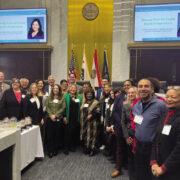The media is awash with reports regarding Harvey Weinstein, the co-founder of movie companies Miramax and the Weinstein Company. Weinstein is accused of sexual harassment and sexual assault by employees and actresses. The complaints came from women both unknown (a temporary employee for one) and famous (Gwyneth Paltrow, Angelina Jolie, and Ashley Judd). As of this time, over 25 women from across several decades have come forward to tell of their experiences.
According to the reports, Weinstein’s misconduct followed a pattern: Weinstein would invite young women to his hotel rooms for a business meeting, and made sure he was alone with the women.. Once in his room, Weinstein would come out in a bathrobe and ask for massages, or would invite the woman to watch him in the shower. In one recorded incident in 2015, Weinstein admitted to groping the breasts of a Filipina-Italian model named Ambra Battilana Gutierrez. Other allegations include a woman being forced to perform oral sex on Weinstein, and rape of at least three others. Weinstein reportedly made it clear to each of these women that if she accepted his sexual advances, he would boost her career. If she refused, there would be negative consequences, such as not being given work.
Weinstein denied the allegations of non-consensual sex and denied that there were any acts of retaliation against any women for refusing his advances. Despite these denials, Weinstein was fired from his company.
Many of the women who told their stories said that they were victimized when they were younger and did not know what was happening to them was illegal. So how does one know when one is being sexually harassed?
Courts have recognized two types of sexual harassment. The first type involves claims of quid pro quo harassment. The second type involves harassment created by a “hostile environment.” Quid pro quo harassment occurs when the harasser makes unwelcome sexual advances or solicitations for sexual compliance on an individual. Submission to or rejection of the unwelcome sexual conduct is used as the basis for employment decisions affecting that individual. It typically exists when submission to sexual conduct is made a condition of concrete employment benefits, such as a promotion, a pay increase, or a job itself. A classic example would be the boss who threatens to fire an employee if the employee refuses to have sex with him (or her).
A hostile environment claim may arise where unwelcome sexual conduct unreasonably interferes with an individual’s job performance or creates an intimidating working environment, even if it does not lead to tangible job consequences. Such an environment is created when the harasser engages in verbal, visual or physical conduct of a sexual nature, that were unwelcome and persistent or severe. An example of this would be the person who keeps inappropriately touching a fellow co-worker despite repeated requests to stop. Even if there is no threat of firing or job demotion, the inappropriate touching is likely to either create an offensive working environment or affect the co-worker’s job performance or both.
Sexual harassment by an employer or supervisor is wrong. This misconduct causes serious and lasting harm to the victim. It should not have any place at work or anywhere else. It is by fighting back, even against powerful employers like Harvey Weinstein, that we can put an end to this reprehensible conduct at the workplace.
Employees found to have been sexually harassed are entitled to various civil remedies, such as lost wages, past and future medical expenses, damages for emotional distress, and punitive damages.
* * *
The Law Offices of C. Joe Sayas, Jr. welcomes inquiries about this topic. All inquiries are confidential and at no-cost. You can contact the office at (818) 291-0088 or visit www.joesayaslaw.com or our Facebook page Joe Sayas Law. [C. Joe Sayas, Jr., Esq. is an experienced trial attorney who has successfully recovered wages and other monetary damages for thousands of employees and consumers. He was named Top Labor & Employment Attorney in California by the Daily Journal, consistently selected as Super Lawyer by the Los Angeles Magazine, and is the recipient of PABA’s Community Champion Award for 2016.]



